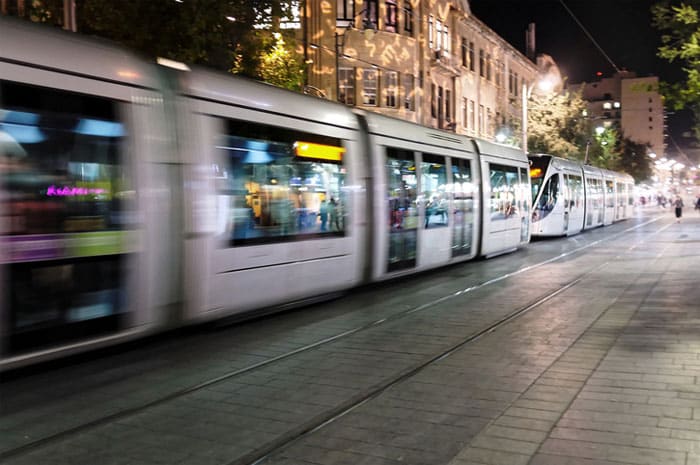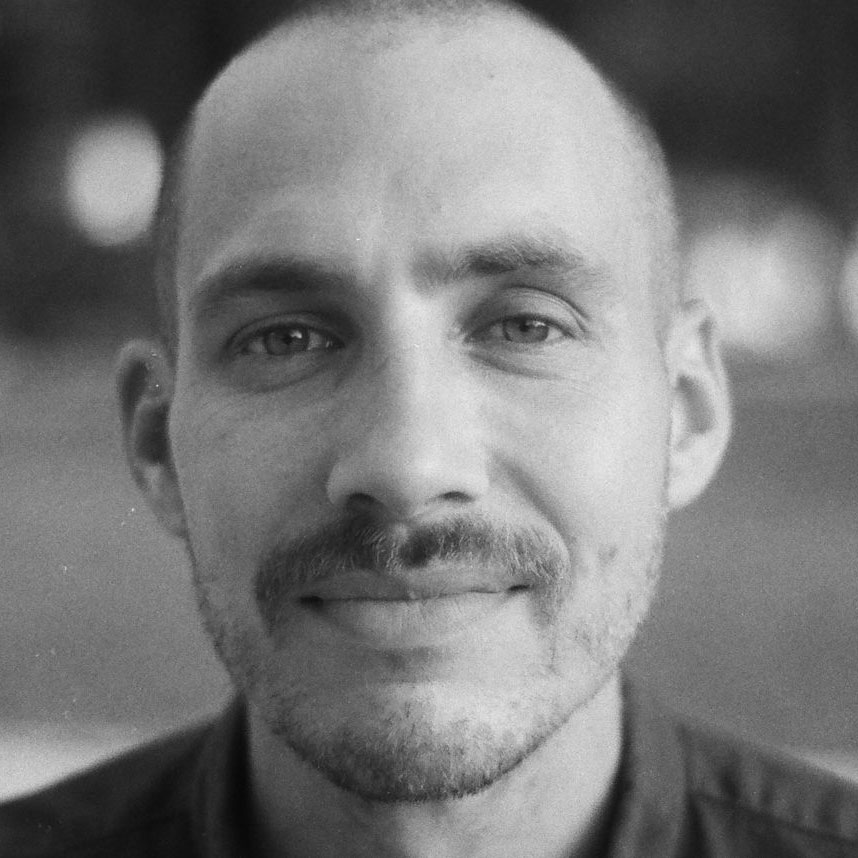 IAISI/Getty Images
IAISI/Getty Images In the parlance of the Ministry of Transportation’s propaganda, the new light rail in Tel Aviv is “a direct line to the future.”
How strange, then, that it has opened to the public precisely now when Israelis are more ambivalent about our future than ever before.
At a time when all we hear are warnings about the death of democracy and the transformation of Israel into a theocratic dystopia, does not a glinting new train offer a compelling counter narrative?
Still, it’s hard not to be a little swept up by the excitement of it all. In a year of hard news, is this not reason for a bit of optimism? At a time when all we hear are warnings about the death of democracy and the transformation of Israel into a theocratic dystopia, does not a glinting new train offer a compelling counter narrative — a story about a country progressing, modernizing, coming into its own?
As I descended the long escalator into the shining underground station on Allenby Street for the very first time, I put in my earbuds and played an old favorite track, “Mind the Gap” by Inbal Perlmutter, the legendary frontwoman of the 90s rockband “Ha-Mechashefot” (“The Witches”).
“Mind the Gap” is an anthem of optimism — a protest song against those who overly romanticize the past, becoming intoxicated by “waves of nostalgia that drift through the air.” Everyone else thinks that “times were better” in the past, but Perlmutter insists that the “future is much cooler,” looking forward to a time when she will “ride the subway in Tel Aviv.”
Though she’s not alive to see it — Perlmutter died tragically in a car accident in 1997 — her vision of Tel Aviv’s future has indeed come to pass. She was no prophetess. The 90s were an optimistic time. It was a decade when it seemed that history was orderly, that progress was real, that the postwar liberal order would endure, that peace in the middle east was near at hand, that technological development would better the world, and that religious fanaticism was in abeyance. Predicting the subway in Tel Aviv was a safe bet.
But though we now have the subway, all the other rosy prognostications from the end of the last millennium have failed to materialize. The liberal order — in Israel, America, and in Europe — is faltering. The environment is in crisis. Peace feels like a pipe dream. Technology has made us more paranoid, more distracted, and more bitter.
And to top it all off, a crisis in Israel that feels as though it will tear this place apart if we don’t somehow deescalate.
Considering all that, the Ministry of Transportation’s promise of a “direct line to the future” sounds a bit more like a threat than a fantasy.
Amidst these grim realities, the light rail has opened with fanfare. Music blared outside the stations. Circus performers dazzled passengers as they waited for the train. Grinning, overeager employees were posted at every corner to point the way. The impression was that of a clown on a unicycle rolling into the shiva house.
Can’t they read the room?
Then again, maybe I’m the one who can’t read the room. Perhaps Perlmutter’s message of optimism is still worth embracing. Perhaps Ben-Gvir and Smotrich and the rest of the thugs will end up like all petty tyrants in the dustbin of history while Israel continues to ride the light rail of progress, becoming more secure, more wealthy, more stable, and more just with every year.
This is far from a safe bet. The challenges facing this country are real and serious. They cannot be obscured by gleaming new infrastructure. They cannot be papered over with Ministry of Transportation sloganeering.
Still, hope and resilience are the only bets we’ve got.
And so, as the train dipped back underground, I took a deep breath and turned up the volume on “Mind the Gap.” I forced myself to forget Netanyahu and his band of radicals. I pushed from my mind the fact that Israelis are out in the streets fighting a losing battle against the country’s inevitable and unstoppable lurch towards the far right.
All of that would be waiting for me when I get off at the next stop. For now, I just want to dream that future will be much cooler as I ride the subway in Tel Aviv.
Matthew Schultz is the author of the essay collection “What Came Before” (2020).























 More news and opinions than at a Shabbat dinner, right in your inbox.
More news and opinions than at a Shabbat dinner, right in your inbox.